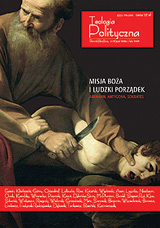
Between the Sacrum and the Profanum: Innocent III's Vision of Papal Power
Między sacrum a profanum: Innocentego III wizja władzy papieskiej
Keywords: Innocent III; Papal; sacrum; profanum; Church
More...
Keywords: Innocent III; Papal; sacrum; profanum; Church
More...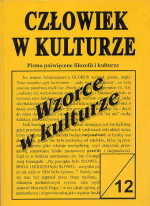
Keywords: humility; international relations; politics
More...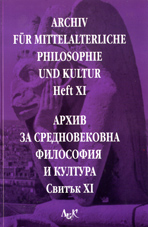
What is the scientific knowledge based upon and how is it structured? Is wisdom a kind of knowledge or is it something more than just the mere knowledge of something? These are some of the basic problems regarded in this article, which approaches or traces metaphysical knowledge in its specifics and reflects upon its "proper" place among the other sciences. Besides that it keeps an eye on the organic nature of knowledge and science, on the unity that brings all the paths of knowledge together, aiming at one supreme and ultimate subject - the justifying goal of all cognition.
More...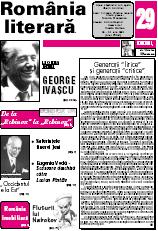
Keywords: explosive stories to increase sale rates of newspapers in Romania and latest examples;
The new favorite topic meant to increase rating and sales of newspapers in Romanian media is the villas built by many budgeters. Most of them are police workers and other corrupted employees who couldn't have raised such sumptuous houses from their salaries. This villa issue which replaced the usual pieces of news on murders sexual abuses and pollution turned Romania's press image into an appendix of real estate magazines.
More...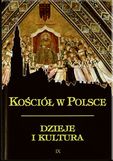
Keywords: papal diplomacy; Polish-Teutonic relations; Turkish threat; union between Rome and Moscow; Tridentine reforms; reinstating Catholicism
Papal diplomacy has always concentrated on carrying out tasks focused on expanding the space for Roman Christianity. Poland, which has been in the group of Christian countries since the second half of the X century from the beginning became present in the orbit of the Holy See’s interests and had very frequent relations with it. Their point of interest lied in political issues, among which were a few centuries long Polish-Teutonic relations, Turkish threat, a calling to join the Holy League, and the Polish mediation in the aspirations towards a union between Rome and Moscow. After Reformation and crystallization of the permanent papal diplomatic service, it turned out that priorities were aspirations towards reinstating Catholicism in Poland’s neighbouring countries: Sweden, Saxony and continually current hopes for a union with Orthodox Russia. Besides these issues other important matters included internal affairs of the Church in Poland: in middle ages – nominations of bishops, keeping Poland in papal obedience; from 16th century introducing Tridentine reforms and a new vision of bishops’ service.
More...Keywords: trust; use; feoffor; feoffee; cestui que use; settlor; trustee; beneficiary; equity; common law;
In the history of law, the English institution of the trust is one of the most original institutions of the private law. A jurist who studies and deals with legal systems based on the traditions of Roman law applies the principle of the numerus clausus of property rights. Therefore, in the theory of civil law, the Anglo-Saxon institution of the trust with split ownership structure appears to be an alien concept. To understand the unique feature of the equity and the trust institution it is unavoidable to discover the historical background of these. This work aims to provide a comprehensive description of the emergence and development of the trust from the Middle Ages until the 19th century.
More...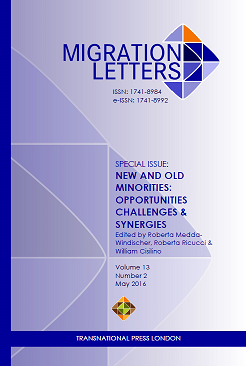
Keywords: migration; second generations; intercultural skills; stereotypes;
The aim of the paper is to show how - apart from rhetoric about interculturalism and good integration practices - today's second generations in Italy are still facing stereotypes or outright discrimination. Comparison with historical minorities and with internal migration has left little trace in the memory of many Italians of knowledge of, and ability to manage, relations with otherness in the daily practices of many institutions (from schools to social-health services). It is a situation of “suspension of memory” delaying or negatively influencing insertion processes: in other words, the assumption that people learn from history and successfully repeat today policies which have been implemented in the past is contradicted in everyday practice. And second generations are the living proof of this lack of knowledge transfer. The academic, socialisation and identity problems facing the children of immigration today could have been reduced if teachers, educators and social workers had benefitted from experience of the past.
More...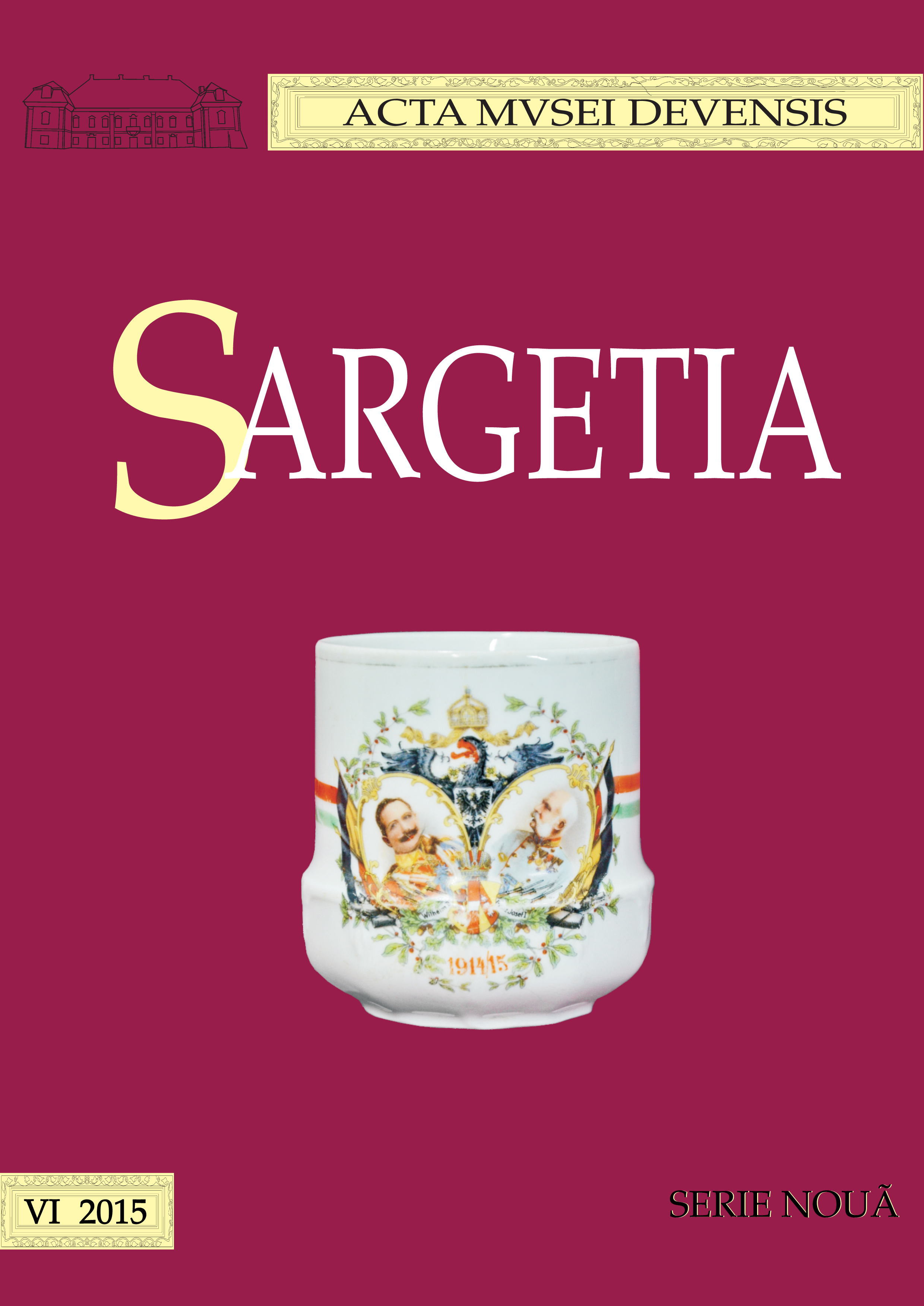
Keywords: Copper Age; Decea Mureşului; pottery; Bodrogkeresztúr; synchronism
The present study deals with new artifacts discovered in the last years of researches in the Şeuşa – Gorgan archaeological site, which complete the knowledge’s about the real cultural-chronological place of the Decea Mureşului habitation from the hill. A decorated fragment of a pot, in a specific Bodrogkeresztúr culture manner, discovered in the pit G17/2006, of the surface SX, together with a small copper link, states, more nuanced, the cultural synchronism phenomena specific for the Early Cooper Age in the Mureş Valley and in Transylvania.The specific shape and décor of the fragment, corroborated with the presence of an “Cucuteni C ceramic” pot, and other entire pots discovered inside the surface dwellings (?) sheds new light on cultural chronological position of the Decea Mureşului habitation on the top of the Gorgan Hill.
More...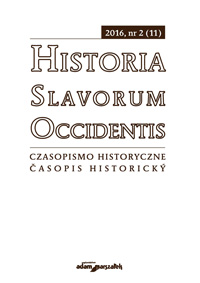
Keywords: history;St. Thomas Aquinas;Dante Alighieri;
This study reflects on questions of a beginning and an end in the view of St. Thomas Aquinas and Dante Alighieri. Critical and comparative analysis will show: (1) in what ways the authors perceived the ultimate goals of humanity; (2) what impact doing so had on their political outlooks.
More...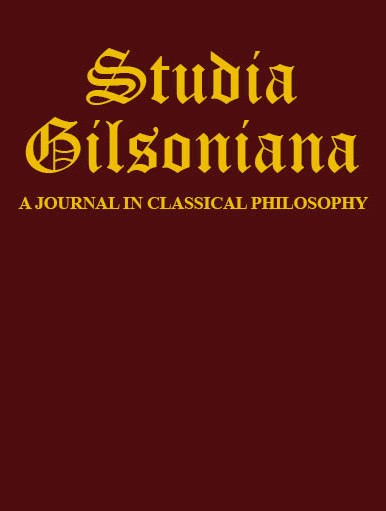
Keywords: theocracy; Pope’s plenitude of power; second causes; spiritual power; temporal power; state of exception;
This article analyzes the relationship, according to Aegidius Romanus, between spiritual power and temporal power. From the point of view of the Augustinian author, the autonomy of the world or that of second causes, following St. Thomas Aquinas, must be respected, so that the motions of nature are not usually hampered by any extraordinary intervention. However, this intervention will always be possible in the form of a miracle and according to a special law. Similarly, temporal power normally follows its own goals, without interventions ab extra, nevertheless, the Pope’s plenitude of power can suspend, if necessary (in casu), the power of the secular princes.
More...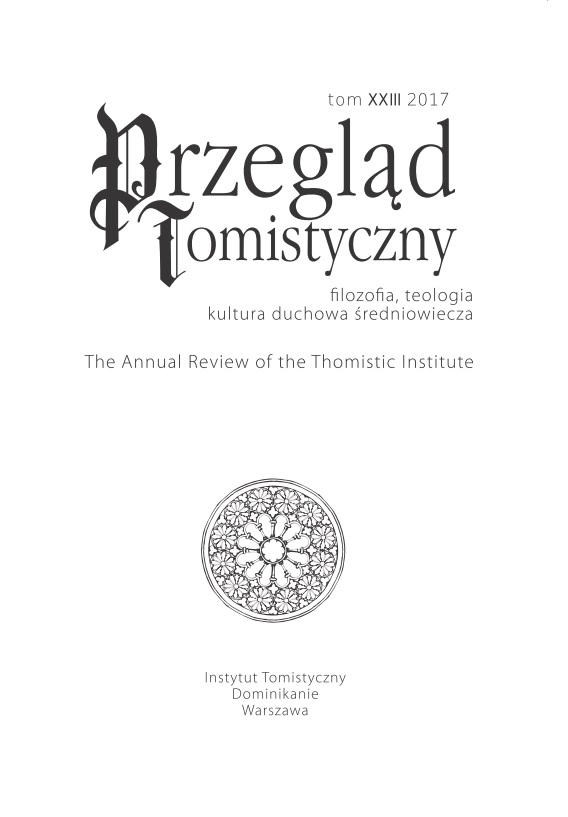
Keywords: Thomas Aquinas;sacrament;sacramentology;necessity of sacraments;baptism;
The article provides a summary of St. Thomas’ views on necessity in general and presents their application to the sacraments. Aquinas considers the necessity of the sacraments either “from the side of God” (ex parte Dei) or ”from the side of human beings” (ex parte hominis). In the first case, there is a conditional necessity presupposing God’s choice and wisdom (which is why the word “suitability” (convenientia) is often preferred). In the case of human beings, the necessity of sacraments is also conditional, presupposing their aim, which is human salvation. The article also presents the differences between sacraments in this regard (underlining the special status of baptism) and contains some remarks about posterior theology and the teachings of the Church on the topic.
More...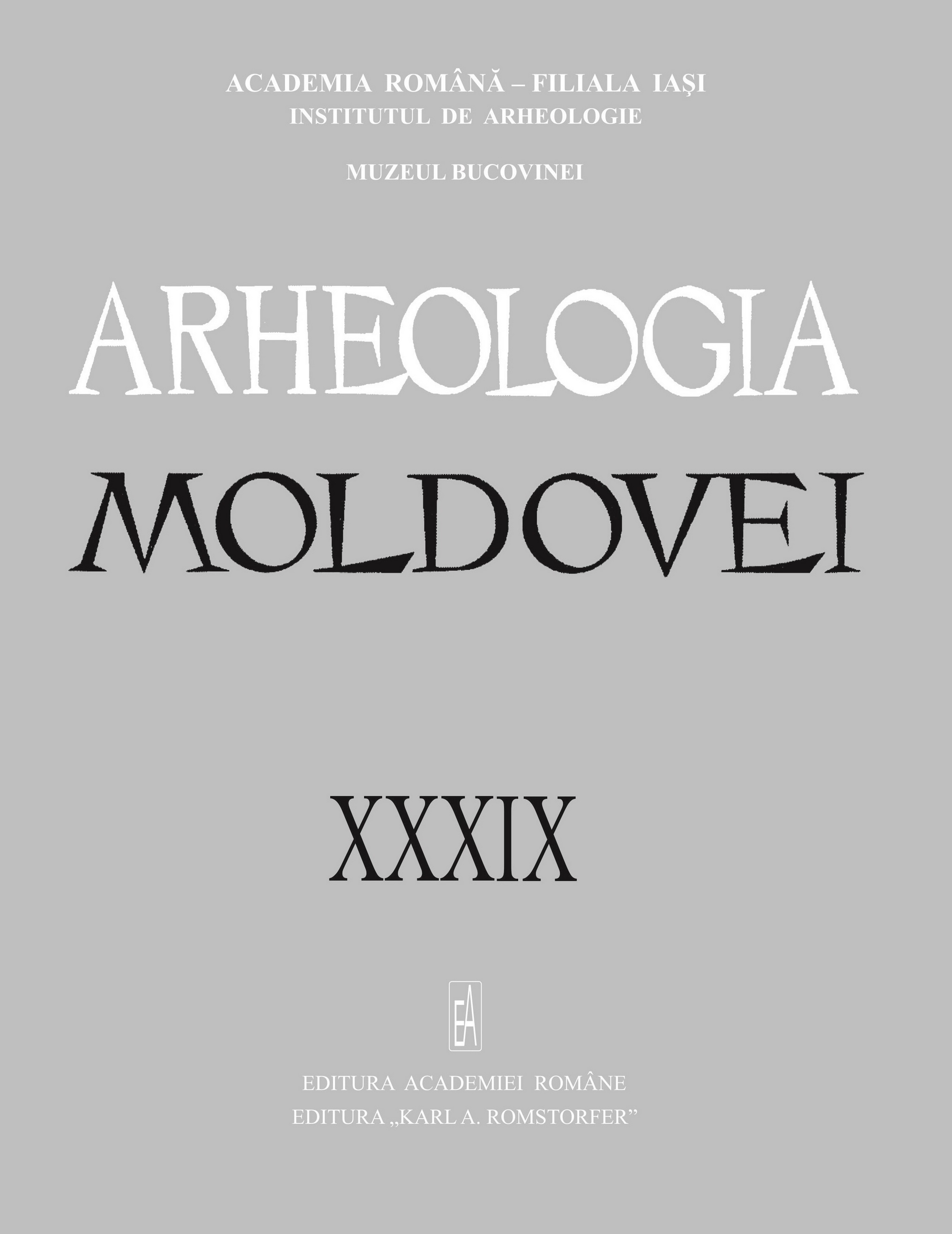
Keywords: Paraschiva-Victoria Batariuc (13 January 1948 – 17 June 2016)
Paraschiva-Victoria Batariuc (13 January 1948 – 17 June 2016)
More...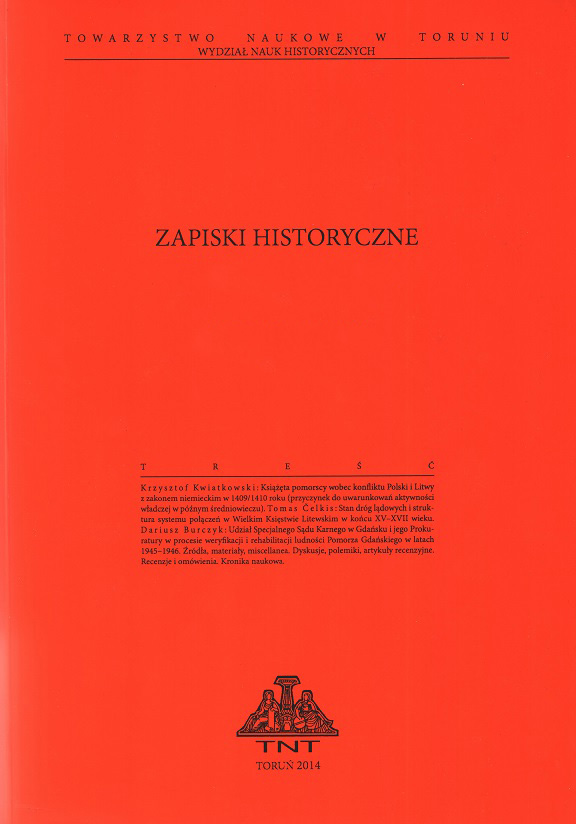
Keywords: chancellery;the chancellery landscape;personal relations;double sounds;
After the outbreak of the Thirteen Years‘ War there was created a certain kind of the Pomesan chancellery landscape. Its creation resulted from the tendency of various chancelleries to cooperate. The central point of the landscape was Marienburg’s [Polish: Malbork] chancellery of the Grand Master under the supervision of the clergyman and chancellor Andreas Santberg. He organized the manner of administering the written documentation with the help of public notaries, who had prepared the earliest files. The personal relations between the city chancelleries of the Monastic State and the Teutonic chancelleries may be noticed. The situation of the work of the chancellery during the Thirteen Years’ War was determined by extraordinary conditions. Preparing the registers of documents in the chancellery of the Grand Master was stopped. Instead of this, the number of drafts of documents increased. In the cities and towns which were most affected by the war events, it was hard to maintain the continuity in the production of documents. After the Grand Master moved to Königsberg, the preparations to set up a new registry office of the territorial ruler commenced. The chancellery’s personnel organized the administration of the documentations according to old models of the Sambian chancellery. One of the characteristic features of the German writing used during the war was the introduction of double sounds „nn” in the initial syllable and sometimes in the final syllable. After the conclusion of the Peace Treaty the process of the gradual secularization of the Grand Master’s chancellery could be observed. In the times of Friedrich von Sachsen educated lawyers were responsible for chancelleries following the models taken over from the Meissen motherland of the Grand Master. Under the rule of the margrave Albrecht people from Francophonie became trustworthy cooperators. They led to the gradual francisation of the language of the chancellery. Writing registers again became part of chancellery production. A new administration was created. Similar phenomena took place in case of writing production of the city chancelleries and other lay and church chancelleries at the end of the Teutonic period, which requires further research.
More...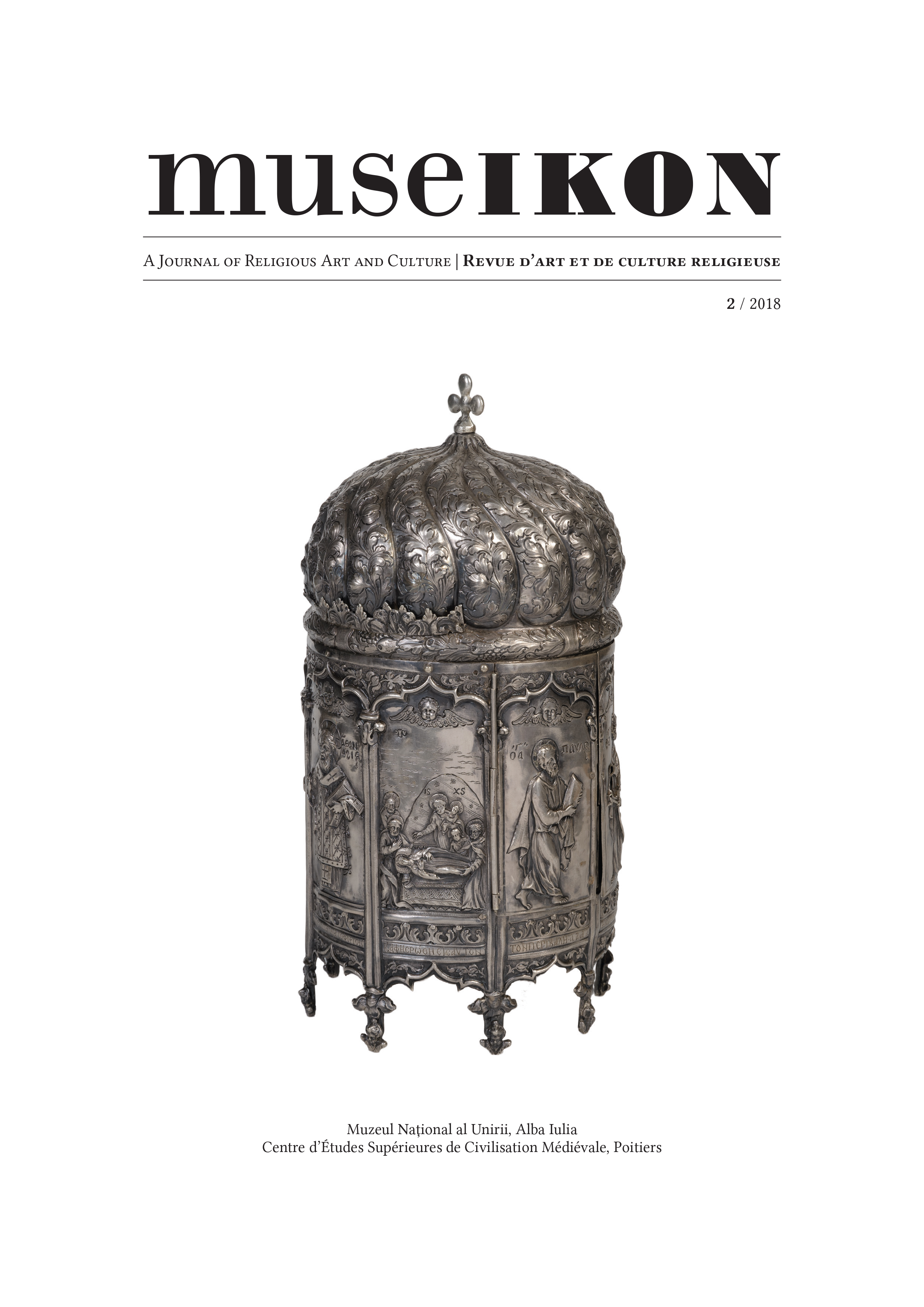
Keywords: Star of the Magi; Bethlehem; fountain; Itineraria; crusades;
In medieval times, an idea emerged that the star of the Magi, a real physical body, had fallen into a well in Bethlehem near the place of the Nativity after carrying out its mission of leading and announcing the event, and that it would still be visible there under particular circumstances. The present article aims to examine how this story was born, how it spread, and how it influenced the Christian imagination. It does so in two ways: analyzing the oldest documented witness to the theme, included in the first chapter of the De Gloria Martyrum by Gregory of Tours (last quarter of the 6th century); and taking into consideration other types of sources, such as the (mainly Latin) Itineraria in the Holy Land and two hagiographic texts relating to the life of St. Willibald. The investigation thus brings to light possible cultural channels between the Medieval Latin West and the Middle Eastern world, emphasizing in particular a decisive chronological junction in correspondence with the events of Crusader times.
More...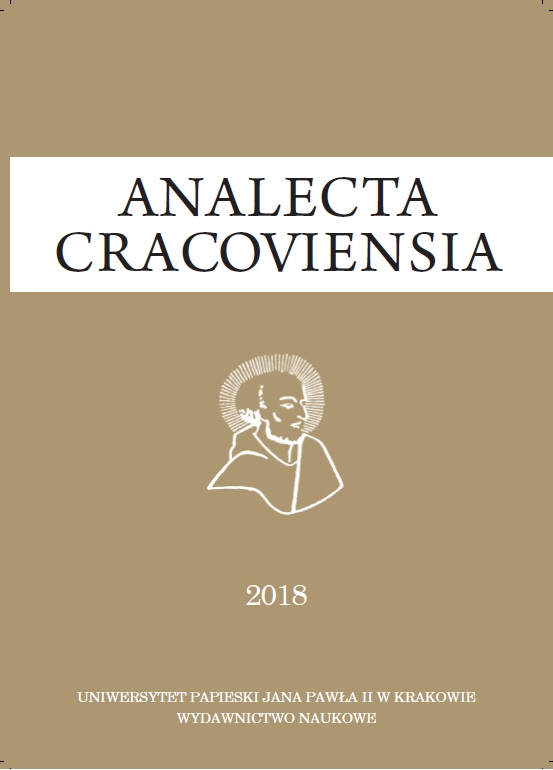
Keywords: homily; preaching the word of God; thematic sermon; lectures; teaching catechism
This article aims to show the other (different from the mission or parish retreats) forms of preaching of the word of God adapted to the local needs, which should be organized by the parish priests in accordance with the decision of the diocesan Bishop.The first part of the article shows various forms of preaching of the word of God in the parish.The second part points out the sources and content of “other forms of preaching” of the word of God. The third part examines important types of “other forms of preaching” in the parish.
More...
Keywords: Vasile Rojneac; volume Saint Nicetas of Remesiana. Life and Work; Te Deum laudamus; Dacoromanian literature;
This article is a chronicle to the volume Saint Nicetas of Remesiana. Life and work, signed by Vasile Rojneac. It is an admirable work designed and overwhelmed by new historical, exegetical and bibliographic data, unusual theological (liturgical, dogmatic, moral and missionary) interpretations of impressive familiarity with the spirit of the time when Saint Nicetas of Remesiana lived, wrote and preached.
More...
Keywords: Achard of Saint Victor;Victorines;translation
The article is the author’s Polish translation of Achard of Saint Victor’s sermon for the feast of saint Augustine.
More...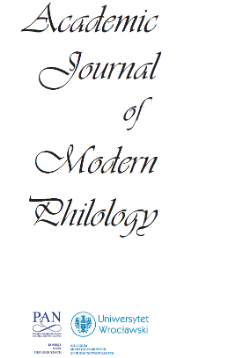
Keywords: Bible; conceptual metaphors; senses; corruption of language
What is said about metaphor in the present paper will mainly concern the Christian Bible as directly or indirectly translated from the original languages (mostly Ancient Hebrew and New Testament Greek). However, unless otherwise indicated, all biblical quotations are based on New International Version of the Bible. Metaphor is conceived as a cognitive-conceptual device rather than a merely rhetorical ornament, which is consistent with basic tenets of cognitive linguistics. Among conceptual metaphors the metaphor MENTAL REALITY IS PHYSICAL REALITY stands out as one of the most productive metaphors as it generalizes the cognitive process of creating and understanding abstract concepts in terms of concrete, physical entities. The subject of religious thinking, contemplation and discourse cannot be experienced through senses, because such things are “What no eye has seen, what no ear has heard, and what no human mind has conceived” (1 Corinthians 2:9). Thus, metaphor is a kind of hyper-sense allowing us to perceive what our senses cannot perceive in all domains of our knowledge. According to the New Testament Christ himself explained to his disciples why he used parables (i.e. metaphors) in his teachings (Matthew 13:10-13). Conceptual metaphors appearing in the Bible are like a kind of a road, or a kind of a bridge, or a kind of a ladder—all leading man to God. The corruption of language connected with the original sin and manifested in using language as an instrument of deception and lying rather as an instrument of communication with God, was overcome by Jesus Christ as the Word (Logos) offered by God to annihilate the consequences of the original sin. As Christ saved Man from sin and death, metaphor frees language from its corruption, which is also a consequence of the original sin. Understood as the hyper-sense metaphor allows man to re-establish and maintain contact with God. Metaphor will not be needed when we see things as they really are. We shall also see God as He really is.
More...
Keywords: grammaticalization; figurative motion; pragmatic inference; verbal periphrasis
The purpose of the paper is to explore diachronically the verbal periphrasis whose origin, linked to the birth of the prose of Alfonso X of Castile, allowed another direction of change thus avoiding the intermediate stage of the time domain. It is subtracted, therefore, of the commonly admitted evolutionary patterns of the periphrasis of verbs of motion. Due to “cultured” origin, the acquired conceptual meaning of the verbal periphrasis mitigates into the procedural-conceptual one, similar to discourse markers. Furthermore, with the help of a relatively large corpus, which covers the major works written between the thirteenth and twentieth centuries, the author will try to perceive and discover the reasons that led to its final assessment in Spanish.
More...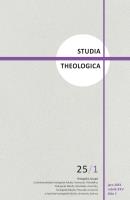
Keywords: reviews;
Svätý Ignác z Loyoly: Duchovné cvičenia (přeložil Ján Benkovský SJ, Trnava: Dobrá kniha, 2021, 190 stran, ISBN 978‑80‑8191‑311‑2)
More...